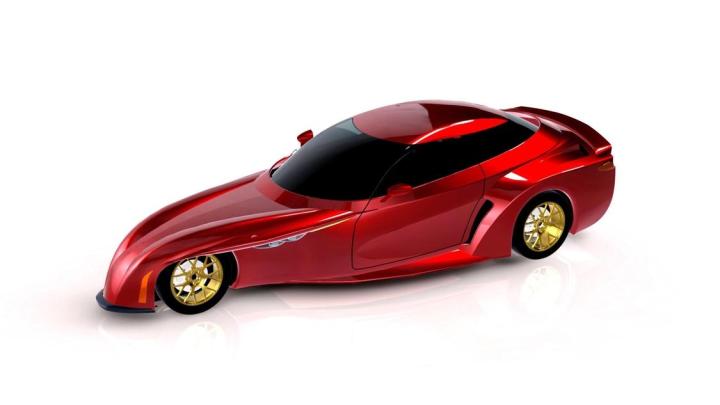
When the Obama administration released new Corporate Average Fuel Economy (CAFE) standards in 2012, which set an average fuel efficiency goal of 54.5 mpg by 2025, we knew big shakeups were coming to the automotive world. But every company reacted a bit differently.
Toyota has invested heavily in hydrogen fuel cell cars, which use no fossil fuels at all. Mercedes-Benz has embraced plug-in hybrid technology, because they can exist within the current transportation infrastructure while still being efficient. And Aston Martin simply scoffed, ordered up more V12s, and took few sips of sherry.
Others companies, while embracing various fuel-saving technologies, have taken another route: redesign the car as we know it.
Enter DeltaWing Technologies Inc, a racing company that designs vehicles for the International Motor Sports Association. In between collecting race trophies and racking up awards for innovation, DeltaWing has been adapting the technology used on its IndyCars for use on road vehicles. Instead of screaming down the track at the 24 Hours of Le Mans, DeltaWing’s roadcars will effortlessly cut through the air like an arrow from an archer’s bow.
The concept does look a little silly though, almost like a cross between an SR-71 Blackbird and a pinewood derby car. The concept’s radical form has a function, though: the narrow-track front wheelbase allows for skinnier, more efficient tires, and the rear-engine design places the majority of the weight over the rear axles. This reduces rolling drag, further improving fuel economy.
The fuel-saving design goes even deeper than that, though. The four cornerstones of the “DeltaWing approach” are reduced weight, increased powertrain efficiency, decreased energy consumption, and improved aerodynamics, and DeltaWing is currently seeking out manufacturing partners that share this vision.
The goal is to ultimately produce a vehicle that is 35 percent lighter, requires 35 less horsepower, and consumes 35 percent less fuel than a comparably performing vehicle.
This concept, which runs a small, 110-hp four-cylinder and can reach 60 mph in around 6.0 seconds, is the first featherweight step. More importantly, DeltaWing believes their technology will help roadcars meet the 2025 54.5-mpg CAFE fuel requirement.
“Many of the aerodynamic, lightweight and handling benefits of the race car can translate to the street,” said Don Panoz, chairman of DeltaWing Technologies Inc. in a prepared statement. “Design, technology, efficient use of lightweight materials, lower horsepower and lower consumption is a winning formula. I believe this is the future of motorsports, and key to meeting the next decade’s fuel economy and emissions standards.”


